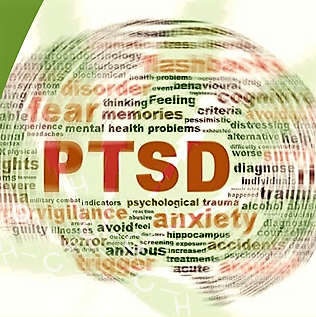What Are The Benefits of Using CBD Oil for PTSD?
Researchers have discovered many promising benefits of CBD to alleviate the symptoms associated with the disorder — especially in people that haven’t responded well to conventional therapies.
1. It Stops Nightmares
Clinical Trials have shown that CBD ceased or significantly reduced flashbacks, nightmares, and persistent memories in patients with PTSD .
2. It Prevents The Formation of Fear Memories
CBD disrupts the feelings of long-term fear memory processing, consequently reducing stress and anxiety.
3. It Reduces Anxiety and Depression Symptoms
CBD has a range of calming effects that reduce anxiety, panic attacks, compulsiveness, and the long-term effects of stress.
4. It Helps With Insomnia
CBD improves the quantity and quality of sleep and reduces night sweats.
So, How Does CBD Oil Work Exactly?
The two major cannabinoids found in Cannabis, tetrahydrocannabinol (THC) and cannabidiol (CBD), are both compounds that influence the body’s endocannabinoid system (ECS) but have very different effects.
Recently, researchers have focused on the importance of the endocannabinoid system as an essential emotional regulating system the body uses to maintain homeostasis — or support ‘balance’ in the internal environment despite changes in the external environment.
The ECS plays a crucial role in brain and nervous system function and is involved in modulating other factors such as appetite, sleep, pain, and cognitive function [9].
Researchers believe that chronic stress, or a traumatic event, can impair the ECS signaling in the brain, therefore, leading to a host of symptoms described above.
For those with PTSD, the ECS system is integral to the regulation of emotional behavior, learning, and responses to traumatic events.
To break it down, CB1 and CB2 are receptors that cannabinoids like CBD target.
The CB1 Receptors: Regulating the Brain & Nervous System
These are found in the brain and the nervous system. CB1 receptors play a role in fear memory formation, appetite, pain tolerance, and mood. The mood enhancing neurotransmitter anandamide activates CB1, and when anandamide levels are low, it creates a deficiency of CB1 receptors leading to increased levels of stress and anxiety.
The CB2 receptors regulate inflammation, a primary cause of many diseases.
High concentrations of CB2 receptors are found in the immune and gastrointestinal system. CB2 receptors bind with CBD and regulate appetite, immunity, inflammation, and pain.
It’s thought that in people with PTSD, ECS signaling is disrupted due to endocannabinoid deficiencies or excess — resulting in increased anxiety, fear, and unpleasant memories.
Most cannabinoids act on both CB1 and CB2 receptors, helping them to regain normal function.
As a result, CBD may be useful for PTSD patients.

